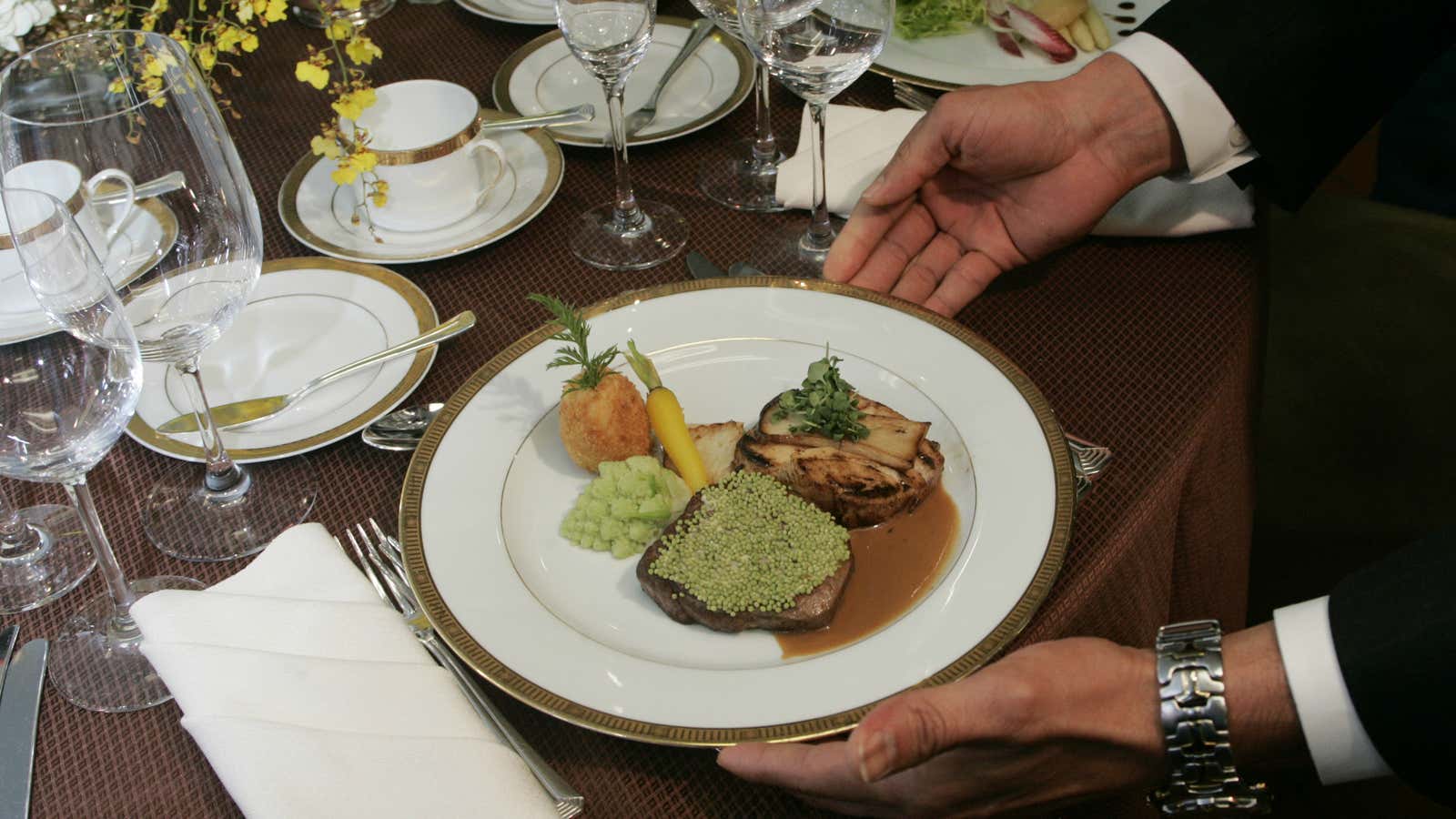It turns out restaurants shouldn’t just go with their guts, not if they are serious about boosting the quality of their business and service.
Just as media outlets and retail companies have embraced technologies to better track and analyze their customers, restaurateurs are striking down a similar path. They are doing so with the aid of third parties with names such as Salido, Upserve, OpenTable, and Avero—all of which dig deep into cyberspace to, among other things, build detailed diner dossiers, according to The New York Times (paywall).
Rather than rely on data from customer-loyalty cards (think Starbucks), companies such as Upserve are able to track individual credit-card numbers. So when someone uses their card to pay for dinner, Upserve begins compiling a profile, including the dates on which the diner visited individual restaurants and what they ate. It even trawls Google and social- networking sites such as LinkedIn and Facebook to provide more detailed information—including pictures of customers’ faces.
This is called a “comprehensive customer profile” at Salido, and it allows restaurants to tailor customer experiences. A restaurateur can, for instance, access a list of the top 100 customers who order white wine, and then use that data to shape how those customers are treated and what promotions they get.
“It really is like Moneyball for restaurants,” Avero founder Damian Mogavero has explained. And it extends beyond the customers. New data technology also allows restaurants to suss out where the wait staff can improve by analyzing all sorts of information, including how much they are tipped.
This kind of digital power will wind up being helpful for certain kinds of restaurants, most likely fast-casual and chain operations. Still, there are some—especially those that offer fine dining—that still prefer to rely on time-tested methods of building face-to-face rapport with loyal diners.
